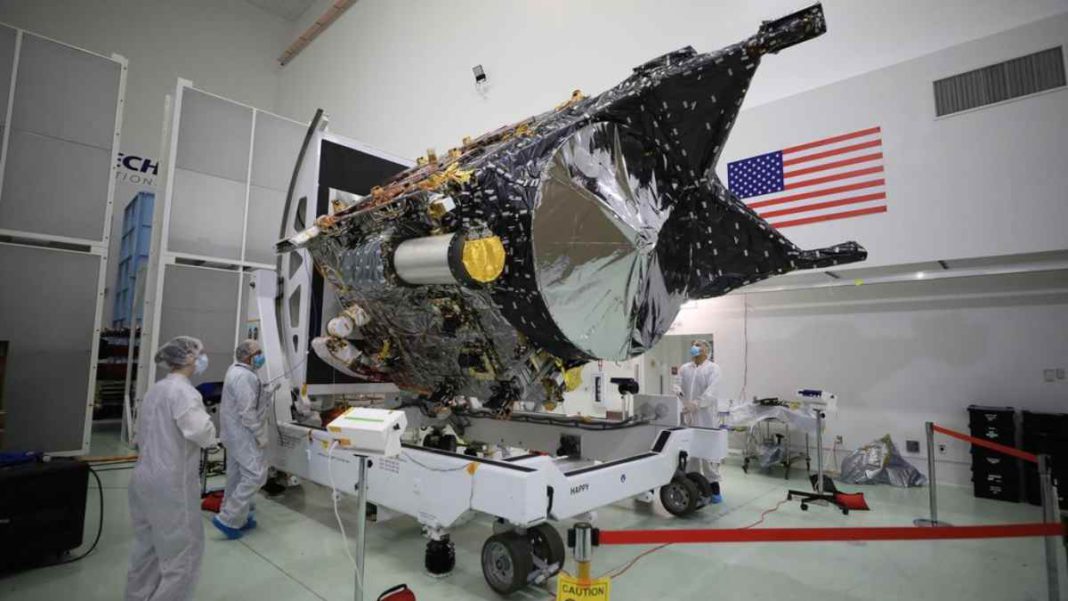UNITED STATES: In a recent announcement, an independently appointed review board hailed the remarkable progress made by NASA’s Jet Propulsion Laboratory (JPL) and Caltech in preparing the Psyche spacecraft for its upcoming mission.
The review board was established following a request from the Psyche mission team to delay the spacecraft’s launch to a metal-rich asteroid of the same name.
Their report, released on May 30, 2023, reveals that the actions taken since November 2022 have exceeded expectations, positioning the mission for success.
The independent review board, led by retired aerospace executive A. Thomas Young, identified several factors contributing to the initial launch delay.
These factors included JPL workforce issues caused by the COVID-19 pandemic as well as challenges related to staffing, communication, and management oversight.
In response to the board’s recommendations, JPL promptly initiated measures to address these concerns both within the Psyche project and as an institution.
The Psyche mission team made significant progress by adding experienced members, reorganising the workforce, and implementing robust metrics to monitor the project’s progress towards launch and operational readiness.
The board’s report also recognised improvements in senior management’s oversight of the mission, demonstrating JPL’s commitment to overcoming the challenges and ensuring a successful outcome.
The review board’s report praised JPL and Caltech for their exceptional engagement and leadership in the response process, lauding their efforts as “world-class.”
JPL took institutional actions, including updating its hybrid work policy, to enhance collaboration and communication among team members.
Additionally, the laboratory’s dedication to attracting and retaining experienced engineering staff was noted, with the Psyche mission benefiting from these efforts.
JPL leadership focused on clarifying roles, responsibilities, and technical skillsets within the engineering organisation while ensuring clear channels for raising concerns.
The report emphasised that the lessons learned from the Psyche mission will prove invaluable to future projects such as the Europa Clipper and Mars Sample Return.
Monthly project status reviews were also revamped to foster a deeper understanding of risks at all levels of the organisation.
Expressing her satisfaction with the results, JPL Director Laurie Leshin highlighted the broader goals achieved through addressing the review board’s findings.
Beyond the successful launch of the Psyche mission, JPL’s efforts have focused on improving the organisation as a whole, with the aim of advancing our understanding of Earth, exploring the solar system and the universe, and searching for signs of life.
Leshin emphasised that the positive response to the review board’s recommendations demonstrates JPL’s ability to overcome any challenge with the right focus and attention.
The report also shed light on the need for NASA and its management centres to define the responsibilities of their standing review boards more clearly.
This step is crucial in ensuring effective programme and project management oversight, which in turn increases the likelihood of mission success. The Psyche spacecraft is set to launch atop a SpaceX Falcon Heavy rocket from Kennedy Space Center in Florida in October 2023.
Upon reaching the metal-rich asteroid Psyche in August 2029, the spacecraft will spend an extensive 26 months in orbit, providing invaluable insights into planetary formation, the interior of terrestrial planets, and the unique characteristics of a world predominantly composed of metal.
The outstanding progress made by NASA, JPL, and Caltech in rectifying the issues that caused the initial launch delay is a testament to their dedication and expertise.
With the Psyche mission back on track and set for a successful launch, the scientific community eagerly awaits the groundbreaking discoveries and knowledge this ambitious mission will bring forth.
Also Read: The Meredith Effect: Unleashing the Power of Aerodynamics for Efficient Flight



